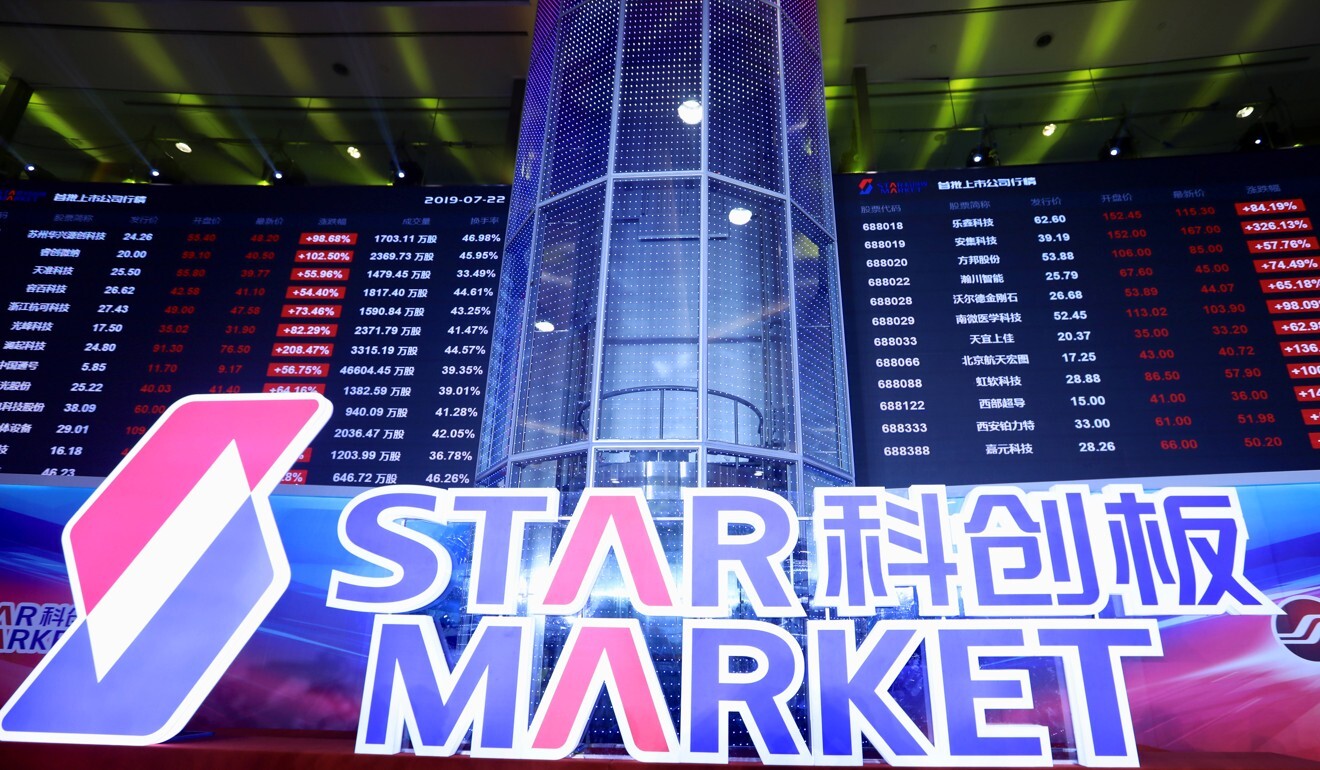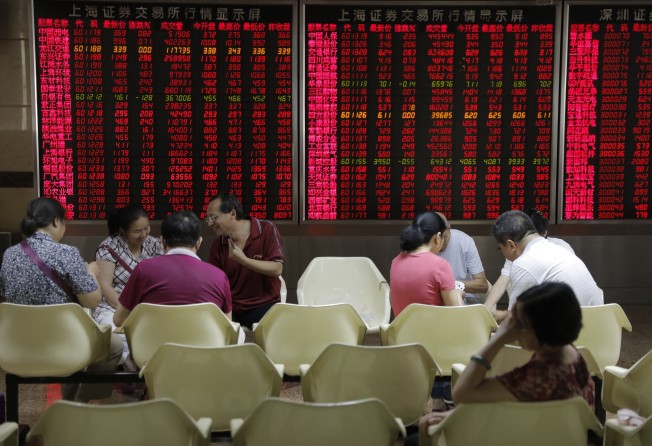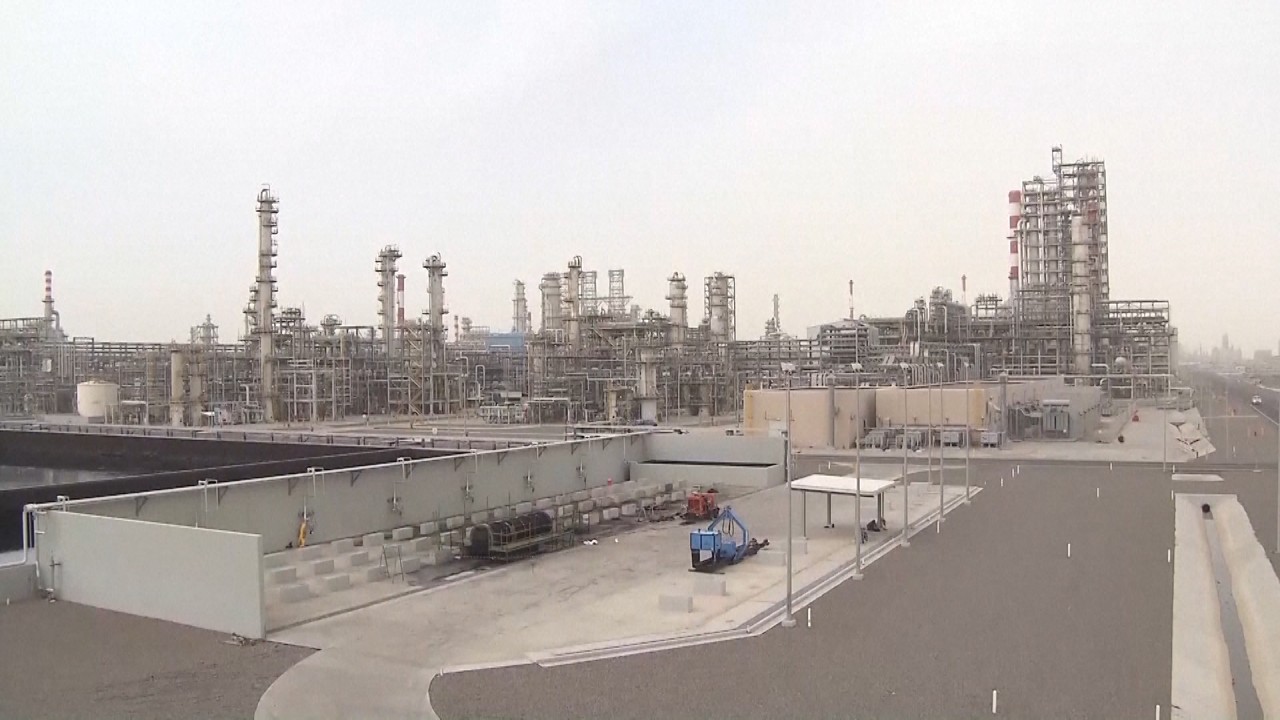
Chinese retail investors’ bet on IPOs pays outsize dividends, but analysts say bubble could burst without warning
- The 243 IPOs in China this year delivered an average first-day appreciation of 126 per cent, according to Wind Information
- Cathay Biotech, which listed on the Star Market in Shanghai on August 13, became the first stock to slip below its IPO price this year

The initial public offerings (IPOs) of Chinese companies listing on the mainland’s stock markets have provided sure-fire first-day returns for the nation’s vast army of individual investors, but analysts cautioned that such exuberance could lead to a repeat of the meltdown seen five years ago.
While all 243 IPOs completed during the first eight months of this year rose on debut, the first-day gain averaged 126 per cent, according to data provider Wind Information.
“The buying craze in IPO shares is a phenomenon with Chinese characteristics,” said Ding Haifeng, a consultant with Shanghai-based financial advisory firm Integrity. “Retail investors have a firm belief that IPO shares will rise on their trading debut.”
China’s stock markets, which are among the world’s best-performing this year, have seen individual investors take a leap of faith to cash in on the rally. In July, individuals opened 2.43 million new trading accounts, according to data by the China Securities Depository and Clearing, taking the overall total to more than 170 million accounts, which is more than the population of Bangladesh. Retail traders also make up an estimated 70 per cent of China’s stock transactions.

Unlike markets elsewhere, short-selling is severely curtailed and offers very limited use to hedge against declines in China. In the previous episode of market catastrophe in 2015, the rout erased US$5 trillion of market capitalisation.
Contec Medical Systems, which manufactures medical instruments, skyrocketed 1,061 per cent to 118 yuan (US$17.25) when it debuted on the ChiNext board in Shenzhen on August 24. It was the biggest first-day gain this year. On Friday, the stock closed at 81.78 yuan, 30.7 per cent off its debut.
Since 1990 when China established its stock market, nearly all IPOs have chalked up first-day gains. Initially, regulators set IPO prices artificially low to facilitate state-owned companies’ fundraising and allowed shares to rise by as much as 30 per cent on debut. On the main boards in Shanghai and Shenzhen, IPOs are now subject to a 44 per cent gain and a 36 per cent decline on the first day of trading.
But regulators have gradually loosened rules, allowing market forces to determine the IPO valuations. On Shanghai’s Star Market, China’s answer to the Nasdaq, and the ChiNext tech board in Shenzhen, there are no restrictions to new shares’ movement in the first five days of trading.
As a result the average first-day rise of shares debuting on the Star Market stood at 167 per cent since its inauguration in July last year, according to data provider jrj.com. This is despite the IPOs being priced at elevated levels with average price to earnings multiple of 85, the data showed.
Investors, however, cannot get enough of the IPOs, attracting several hundred billions of yuan in upfront payment from retail investors to participate in a lottery system that decides the winners of IPO shares. Beijing FengShangShiJi Culture Media, which offered 8 million shares to the public in August, was more than 6,200 times oversubscribed, one of the many IPOs that drew stratospheric demand. This pushed up the average oversubscription for the 243 IPOs to around 2,500 times, according to Wind data.

02:30
Global stock markets plummet amid coronavirus panic and falling oil prices
The markets are showing some signs of weakness. On Friday, the CSI300 index that tracks performances on both the Shanghai and Shenzhen markets dropped 1 per cent to 4,770.22, ending the week with a 1.5 per cent loss in tandem with the sell-off on Wall Street.
There are concerns that the recent run-up in the global equity markets may have been overdone.
Cathay Biotech, which listed on the Star Market on August 13, has become the first IPO this year to see its shares slip below the offer price. The shares fell below the IPO price of 133.45 yuan on August 19 and on Friday closed at 113.5 yuan.
“The strong first-day performance means many buyers believe that the stocks could continue its upwards momentum regardless of the lofty valuations,” said Dong Jun, a Shanghai-based hedge fund manager. “Some of them are expected to lose money when heavy profit-taking sets in.”